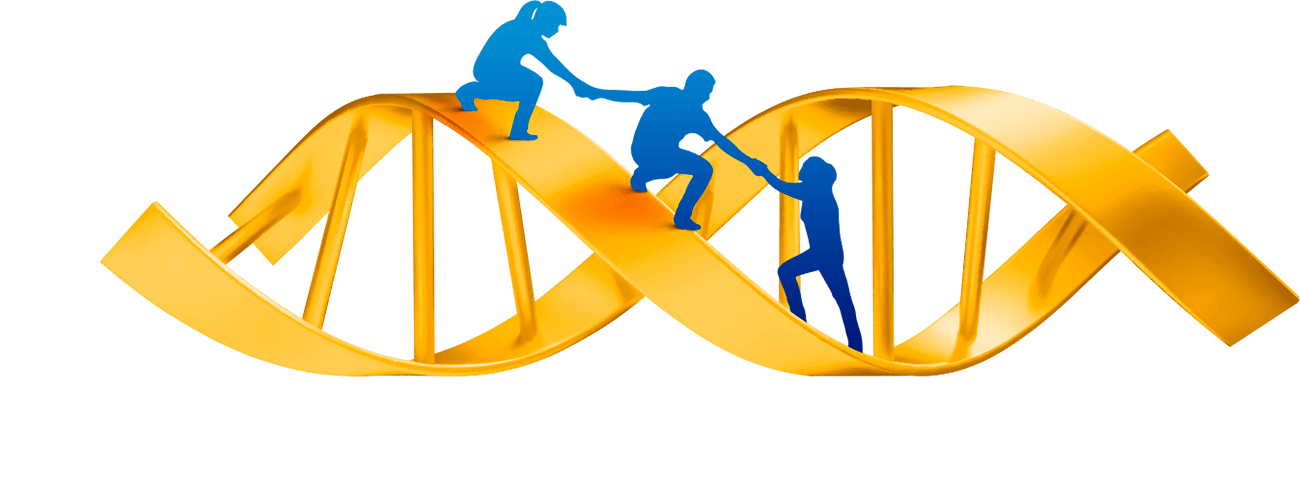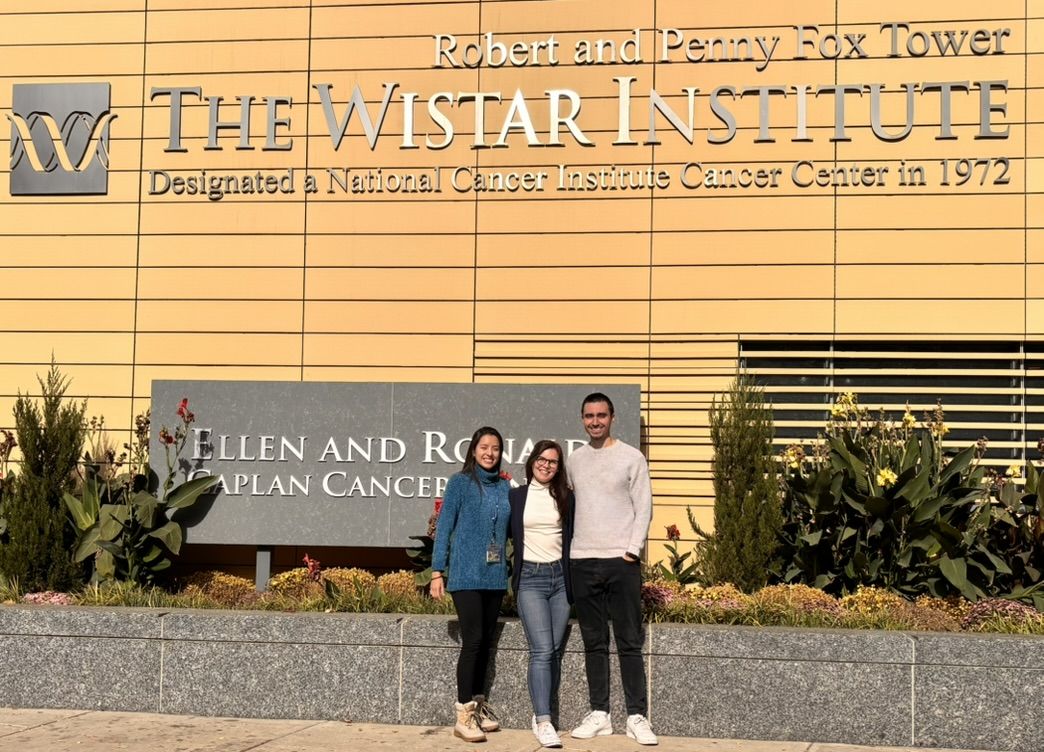Irene Bertolini, Ph.D.
-
Caspar Wistar Fellow, Molecular and Cellular Oncogenesis Program, Ellen and Ronald Caplan Cancer Center
Dr. Bertolini’s research focuses on investigating the role of extracellular vesicles in regulating cell-to-cell communication within the tumor microenvironment. Bertolini received her Ph.D. in Molecular and Translational Medicine at the University of Milan (Italy) in 2018. To pursue postdoctoral research, Bertolini moved to Philadelphia, where she joined Dr. Dario Altieri’s lab at the Wistar Institute. She was promoted to a staff scientist position, and in 2024, Bertolini accepted a position as a Caspar Wistar Fellow.
The Bertolini Laboratory

The Bertolini Laboratory
The Bertolini laboratory focuses on understanding the contribution of extracellular vesicles to shaping the tumor microenvironment and the metastatic niche in glioblastoma and breast cancer. In recent years, it has been shown that extracellular vesicles released by tumor cells and/or stromal cells may have a crucial impact on tumor progression and invasion. The Bertolini laboratory aims to elucidate their contribution to regulating immune infiltration and activation of resident stromal cells. In particular, Bertolini’s research is focused on (i) the role of microglia-derived extracellular vesicles in shaping the glioma tumor microenvironment and (ii) the contribution of extracellular vesicles released in hypoxic conditions by breast cancer cells to preparing the pre-metastatic niche.
-
Postdoctoral Fellows
Miguel Quiralte Pulido, Ph.D.
-
Research Assistants
Isabela Albuja Ron
Research
Determine the role of microglia-derived extracellular vesicles (EVs) in shaping the glioma tumor microenvironment (GME)
Glioblastoma (GBM) is the most common and aggressive tumor of the central nervous system, characterized by a highly complex and immune suppressive microenvironment. In the early stages, almost 40% of the total tumor mass is composed of tumor-associated microglia (TAMi). Despite considerable effort, the crosstalk between TAMi and tumor cells is poorly understood, and the mediators implicated in this response have not been identified. Preliminary data suggest that TAMi secrete EVs that play a critical signaling role between multiple cell types within the TME. Using combined in vitro and in vivo approaches, the Bertolini laboratory aims to unravel the contribution of TAMi-EVs in supporting glioma tumor growth and the maintenance of an immune-suppressive environment.
Investigate the role of hypoxia-derived EVs in breast cancer progression and metastasis
Breast cancer is one of the most common cancers in women worldwide. Intratumoral hypoxia is a major determinant of poor prognosis in breast cancer, independent of clinical stage at diagnosis. Previous studies (Bertolini I. et al., 2020, 2022, 2023) showed that EVs produced by breast cancer cells under hypoxic conditions can lead to tumorigenic transformation of normal epithelial cells in vitro and in vivo. Preliminary data showed that hypoxic-EVs prepare the pre-metastatic niche, inducing an increase in angiogenesis and generating an immunosuppressive phenotype. The Bertolini laboratory aims to dissect the role of hypoxic-EVs in shaping the pre-metastatic niche using in vivo and in vitro models of breast cancer. Moreover, the laboratory plans to investigate the EVs’ biodistribution in vivo.
Commitment to Mentorship
As participants in the MentorFirst initiative, the Bertolini lab is committed to supporting a culture of mentorship for researchers at all stages of their professional development.

Lab in the News
Selected Publications
Intercellular hif1α Reprograms Mammary Progenitors and Myeloid Immune Evasion to Drive High-Risk Breast Lesions
Bertolini I, Perego M, Nefedova Y, Lin C, Milcarek A, Vogel P, Ghosh JC, Kossenkov AV, Altieri DC. Intercellular hif1α reprograms mammary progenitors and myeloid immune evasion to drive high-risk breast lesions. J Clin Invest. 2023 Apr 17;133(8):e164348. doi: 10.1172/JCI164348. PMID: 36892943; PMCID: PMC10104898.
NFκB Activation by Hypoxic Small Extracellular Vesicles Drives Oncogenic Reprogramming in a Breast Cancer Microenvironment
Bertolini I, Perego M, Ghosh JC, Kossenkov AV, Altieri DC. NFκB activation by hypoxic small extracellular vesicles drives oncogenic reprogramming in a breast cancer microenvironment. Oncogene. 2022 Apr;41(17):2520-2525. doi: 10.1038/s41388-022-02280-3. Epub 2022 Mar 30. Erratum in: Oncogene. 2023 Feb;42(9):708. Erratum in: Oncogene. 2023 Jun;42(27):2195. PMID: 35354906; PMCID: PMC9040905.
Small Extracellular Vesicle Regulation of Mitochondrial Dynamics Reprograms a Hypoxic Tumor Microenvironment
Bertolini I, Ghosh JC, Kossenkov AV, Mulugu S, Krishn SR, Vaira V, Qin J, Plow EF, Languino LR, Altieri DC. Small Extracellular Vesicle Regulation of Mitochondrial Dynamics Reprograms a Hypoxic Tumor Microenvironment. Dev Cell. 2020 Oct 26;55(2):163-177.e6. doi: 10.1016/j.devcel.2020.07.014. Epub 2020 Aug 10. PMID: 32780991; PMCID: PMC7606608.



